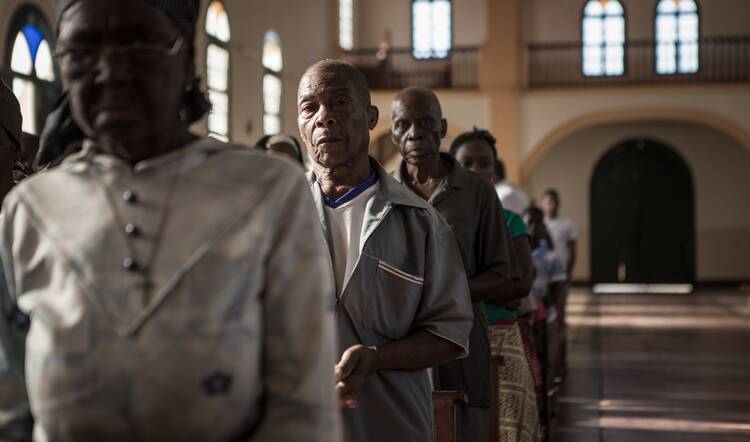We need some comforting, all of us. A moment when we are drawn away from our troubles, a slice of life without its accompanying sorrows. The comforting does not change our circumstances. They will encircle us again soon enough. But the repose is not without purpose. Sometimes laying down a weary head helps us to see the way forward. The evidence has always been clear: naps, days off and vacation make our work more productive, not less.
And then there are the corrosive comforts. They set us free but at the cost of scattering our vital energies. Calibrating the harm they do is a very singular study. We cannot say, even for ourselves, how much of self we sacrifice to web-wandering, to pornography, to alcohol and drugs, to relationships and habits that drain life rather than bestow it.
Where then is the comfort that Isaiah promised?
As nurslings, you shall be carried in her arms,
and fondled in her lap;
as a mother comforts her child,
so will I comfort you;
in Jerusalem you shall find your comfort (66:12-13).
Even before his death and resurrection, Jesus dispatched his disciples, telling them to proclaim that “The kingdom of God is at hand for you” (Lk 19:9). The kingdom had not yet claimed all the earth, but here was an unmistakable call to come in for God’s comforting. Two millennia later, the kingdom has yet to encompass the earth. Where do we go to glimpse it? Can we find a moment of comfort, when everything is as God and the good would have it?
Yes, we do have such a moment. We call it Eucharist. Each time the church gathers for Eucharist, she is able to celebrate her great act of thanksgiving because, in that moment, the kingdom has come. All the elements of God’s reign are realized: The people have been gathered; they stand before Christ, mutually forgiving and forgiven; they listen as God speaks to them; and they are fed from God’s own table with God’s own self.
In the Eucharist, heaven and earth are wed for a moment.
In the Eucharist, Christ comforts the ages. At Eucharist, the powers opposed to the Savior are subdued, though they slither deep inside our souls, awaiting their moment to return and limiting our ability to experience the full wonder of the Eucharist.
The Eucharist can be a thing of great beauty when ministers are well trained and musicians are gifted. It can be an instrument of education and inspiration, especially if the homilist can preach well. But even if these fall short, God’s great comfort is not curtailed.
The Eucharist is Christ’s conscious act of comfort, which he created the night before he died. The kingdom of God broke into that upper room when Christ deliberately gave thanks to the God of Israel, knowing that his own death stood at the door.
In the Eucharist, heaven and earth are wed for a moment. Listen to words of the Mass. We address each other, we address God the Father Almighty, and we address the saints and angels because they, too, surround the altar of the Lamb.
Therefore I ask blessed Mary ever-Virgin,
all the Angels and Saints,
and you, my brothers and sisters,
to pray for me to the Lord our God.
When we are called to sing the Sanctus, we are reminded that we join a celestial chorus.
And so, with Angels and Archangels,
with Thrones and Dominions,
and with all the hosts and Powers of heaven,
we sing the hymn of your glory,
as without end we acclaim.
The prayers of the Eucharist do not speak of what should be, of what might be. The confidently address God because, in this moment, even as we await the realization of righteousness, the comfort of the kingdom has come for us.
Deliver us, Lord, we pray, from every evil,
graciously grant peace in our days,
that, by the help of your mercy,
we may be always free from sin
and safe from all distress,
as we await the blessed hope
and the coming of our Savior, Jesus Christ.
The Eucharist is not an act of denial, a shallow saying of what we want to hear. Indeed, at its climax, we admit to the one thing the kingdom still lacks: our undivided hearts. And so we pray:
Lamb of God, you take away the sins of the world,
have mercy on us.
Lamb of God, you take away the sins of the world,
have mercy on us.
Lamb of God, you take away the sins of the world,
grant us peace.
And then the great consolation sounds forth. The kingdom has come. This is neither promise nor hope. In this moment, having come as sinners, we’re asked to lift our eyes and to see Christ in our midst.
Behold the Lamb of God,
Behold him who takes away the sins of the world.
Blessed are those called to the supper of the Lamb.
Readings: Isaiah 66:10-14c Galatians 6:14-18 Luke 10:1-12, 17-20










